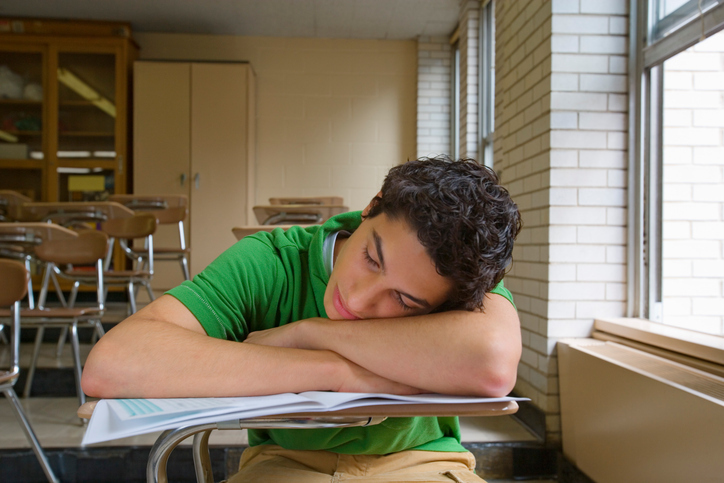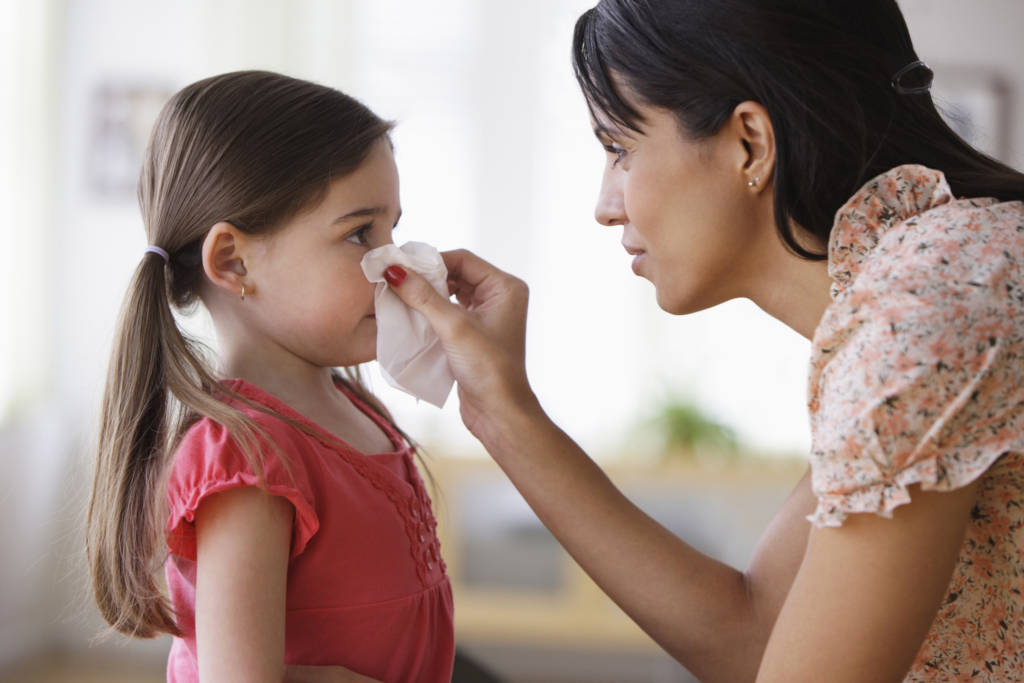How much sleep teens need
Although surveyed parents thought their middle and high schoolers could function properly on seven hours or less of sleep, teens need much more.
The American Academy of Sleep Medicine recommends teens ages 13 to 18 sleep eight to 10 hours every night. The National Sleep Foundation also recommends eight to 10 hours for most 14- to 17-year-olds.
“If their bodies don’t tell them they’re tired until 11 p.m. or later and then they have to be at school before 7:30 a.m., many of these teens experience a chronic sleep debt,” says Dunietz, also with the U-M Sleep Disorders Center.
And the effects of chronic sleep debt reach far beyond feeling tired in the classroom (though that’s also a problem).
A lack of zzz’s can result in decreased brain power — a major issue for high schoolers driving early in the morning — as well as an increased chance of mood disorders (such as depression), obesity and risky behaviors, Dunietz says.
 A 50-50 split
A 50-50 split
In the study, 51 percent of parents supported later school start times.
Among those opposing the shift, Dunietz says, many had logistical concerns with later school starts. Respondents cited transportation issues, as well as worries about fitting in after-school activities and adjusting meal times.
But schools that have pushed back start times report negligible — if any — negative effects, she says.
Parents who thought more sleep would benefit their children’s health or academic performance were more likely to support the switch.
Real results
To find support for school start times of 8:30 a.m. or later, Dunietz says to look no further than schools that have made the change. It hasn’t happened in a majority of districts, but teens who do have later school start times are sleeping longer and are more alert during the day. Later school start times are reported to have had a positive effect on athletic performance, even when practice times are shorter to accommodate the later end of the school day.
“There’s evidence that it’s a win-win for everyone,” she says. “We cannot change teens’ biology to have them sleep earlier, so we should push the school start times back, in line with recommendations from the American Academy of Sleep Medicine and the American Academy of Pediatrics.”





